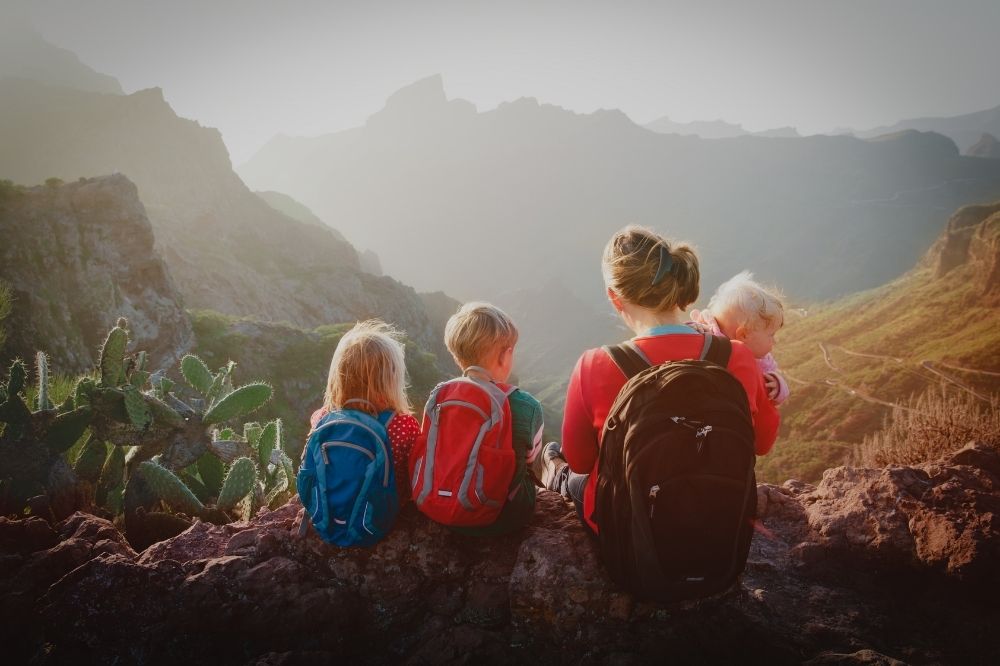Confidence doesn’t come from instructions. It grows from experience, especially for kids. Letting them try, stumble, and find their balance gives them something no pep talk ever could. The outdoors is one of the best places for that kind of growth.
Now imagine that, but after dark. Yes, it sounds a bit intimidating. But with the right setup, a night hike can become one of your child’s favorite memories. The moon lights the path, the shadows spark curiosity, and the quiet wraps around you like a blanket.
What starts as a simple walk turns into a powerful moment. One where your kids feel trusted. Capable. Brave. And you get to witness it.
Why Night Hikes Leave a Lasting Impression on Kids
Day hikes are lovely. But hiking under the stars? That stays with them.
The pace slows down. The world looks and feels different. Even familiar trails take on a magical tone. Your child gets to see the night as something gentle, not scary. The rustling leaves, the glow of the moon, the soft sounds in the distance—they all become part of the story.
And more than that, you’re trusting them. You’re saying, “I believe you can do this.” That message sticks longer than any bedtime story. It also tunes their senses. They start noticing sounds, textures, and movements they usually overlook. It becomes an exercise in awareness, not just walking.
What Makes a Night Hike Feel Safe (and Fun)
You don’t need a national park. Start with a short, familiar trail. Even your own backyard can be a great beginning.
Keep it simple: loop trails or short out-and-backs work best. Dress in layers, check the weather, and make sure everyone feels warm and dry.
Now, here’s where gear matters:
- Hands-free lighting makes a huge difference. In simple words, headlamps give your kids the freedom to look around, lead the way, or stop to investigate. Look for ones that are lightweight, adjustable, and bright enough to light up the trail without blinding anyone.
- Reflective jackets or vests help you keep an eye on little wanderers when they move ahead.
- Compact trekking poles can give young hikers more balance and confidence, especially if the trail is uneven or a little rocky.
- Child-sized backpacks let kids carry their own water and snacks—building independence and ownership.
Other must-haves? Bug spray, a small first-aid kit, snacks, water bottles, and a charged phone. Keep it light, but don’t skip the essentials.
Make It Feel Like a Real Adventure (Not Just a Walk)
You can call it a hike. Or you can call it a mission.
Give your kids a purpose: count five different night sounds, spot the moon, or look for blinking bugs. Make up trail names or invent your own ranger team. Let them carry small backpacks with their “expedition tools.”
Even better, let them lead—especially with their headlamps. It shifts the experience from “we’re walking” to “I’m exploring.” You’ll be surprised at how much they rise to the moment.
Halfway through, pause. Sit down on a log. Share a snack. Tell a story in the dark. This isn’t about rushing to the finish. It’s about creating moments. Ones that your kids will hold onto and repeat at sleepovers for years.
Lessons That Stay With Them (Long After the Hike Ends)
What your kids take away from a night hike goes far beyond the trail. These lessons settle in quietly—but they stick around, shaping how they grow, trust, and move through the world.
- Confidence in the unfamiliar
Stepping into the dark isn’t easy. But when kids do it—and realize they’re okay—they feel stronger. They learn that trying something new doesn’t have to feel scary. It can feel exciting.
- Trust in their own instincts
Without constant direction, kids start to listen to their gut. They notice the sounds around them, watch their footing, and choose when to pause. These small decisions teach them to rely on their own judgment.
- Bravery in small steps
Courage doesn’t always roar. Sometimes, it’s the quiet act of walking forward, even when everything looks different. Night hikes help kids practice bravery in a space that’s safe and supported.
- Value of presence over pace
On a night hike, there’s no rush. Kids begin to understand that slow moments matter. They learn how to enjoy stillness—and how to spot magic in what’s usually missed.
These hikes don’t just build skills. They build stories—ones your kids will carry long after the flashlights turn off.
Conclusion: Big Bravery Starts in Small Moments
You don’t need a mountain. You don’t need a packed weekend or a huge plan.
Just pick a trail. Pack your bag. Strap on those headlamps.
What you’ll get isn’t just a quiet walk. You’ll see bravery being born, right in front of you—in giggles, in questions, and in the steady steps of your little explorers.

